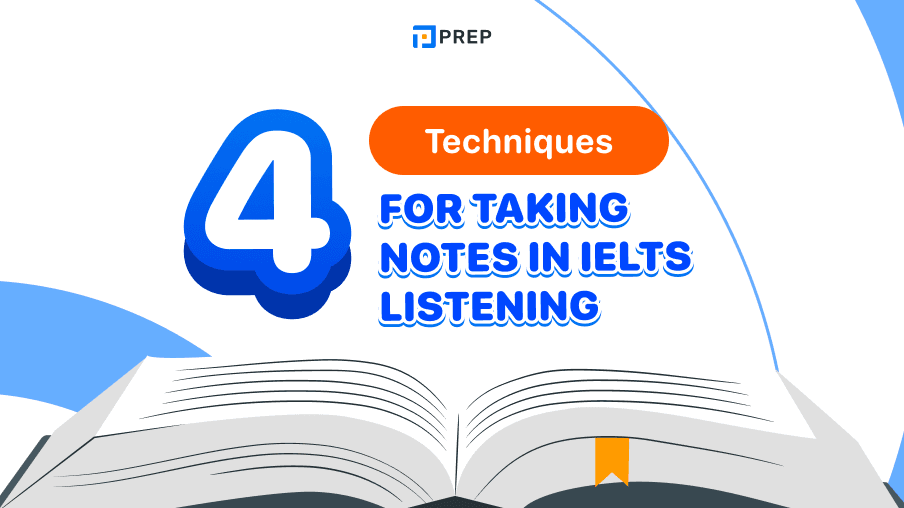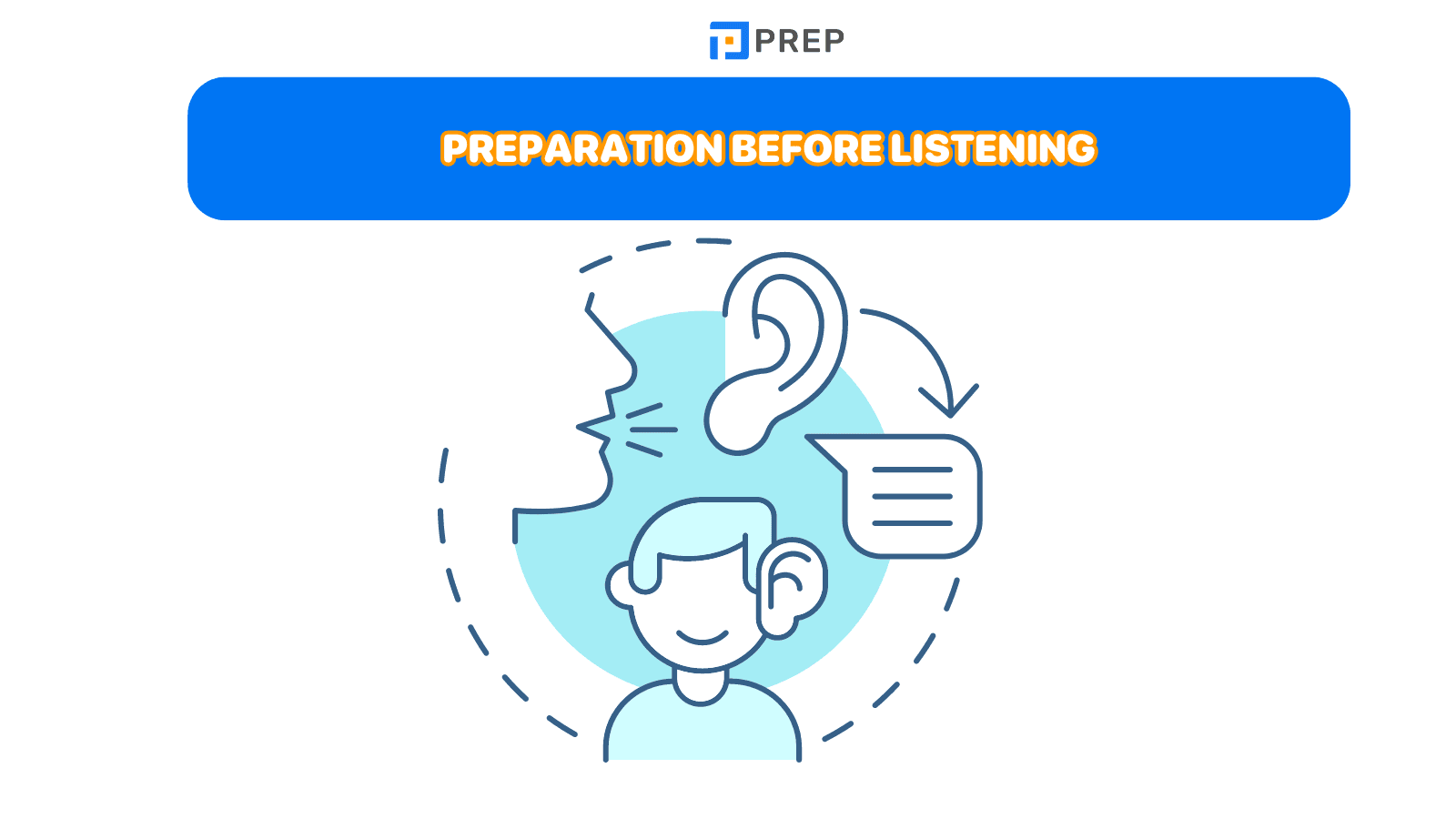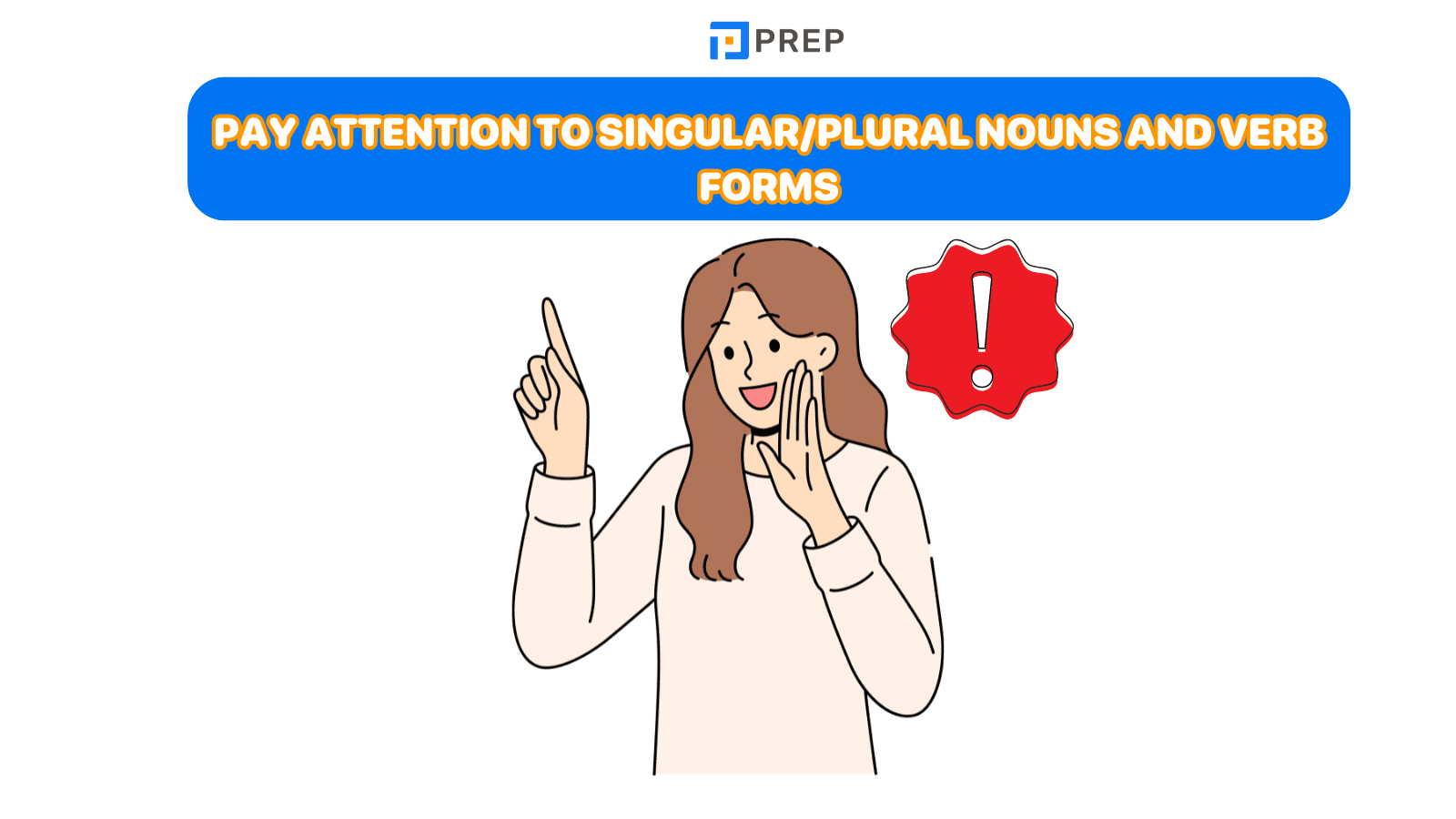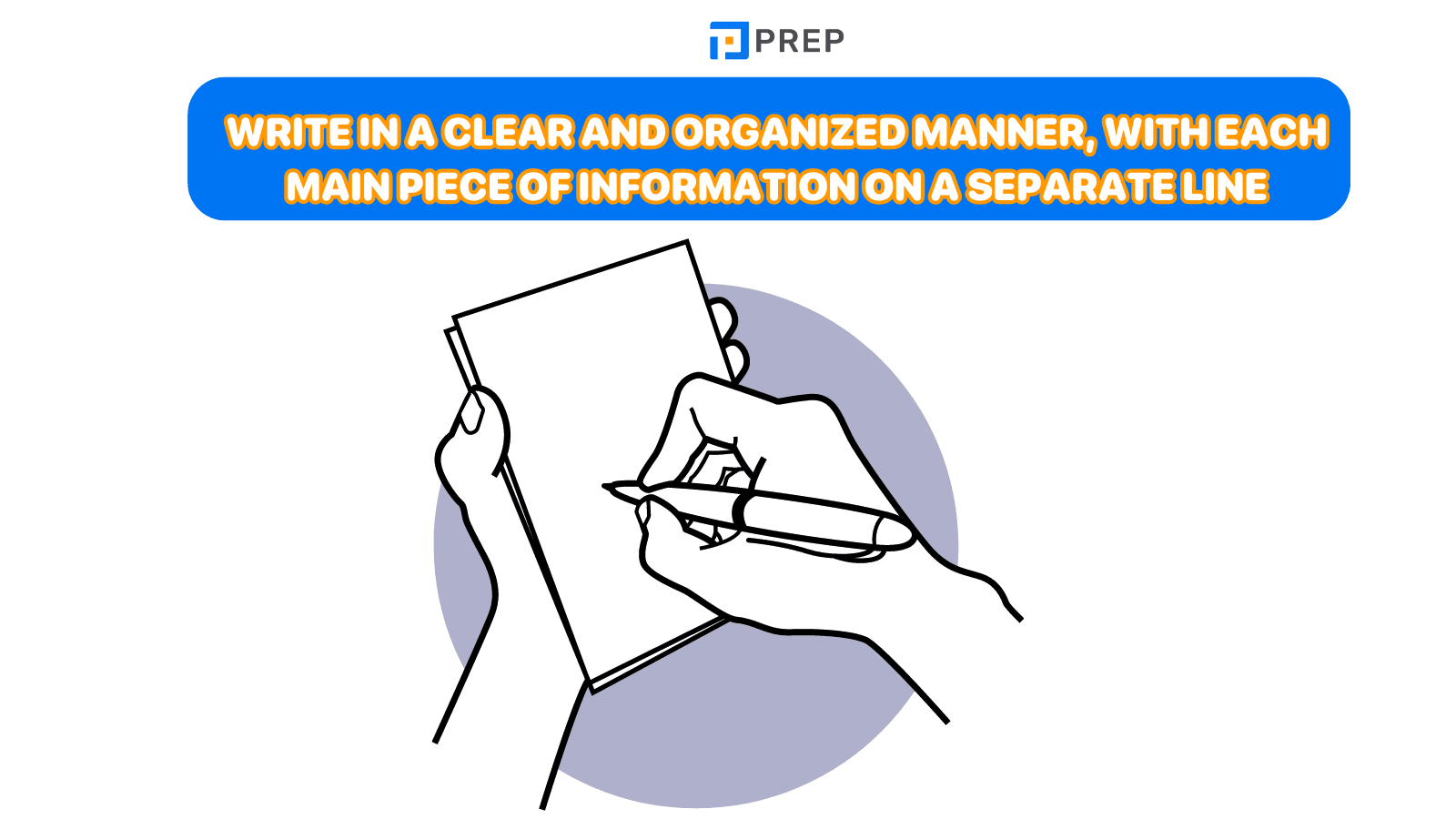[TEACHER'S SHARING] Effective techniques for taking notes in IELTS Listening - Tips to improve your listening skills quickly
During IELTS preparation, candidates receive numerous strategies to approach the test effectively and achieve high scores. Today, PREP introduces a crucial technique: note-taking in IELTS Listening. This method accelerates listening skill development and simplifies the learning process. Master this technique to excel in IELTS Listening.

I. Preparation before listening
-
Pay attention to the type of word needed to fill in the blanks (for fill-in-the-blank tasks) and keywords in the prompt to guide your attention while listening.
-
Develop a habit of distinguishing important information from non-important information. For example, if the listening passage is a conversation between two people discussing dinner plans, the important information would be the agreed-upon date/time, while other details about different dates/times are not relevant.
-
Please note that speakers rarely use exact words from questions. Instead, they employ synonyms or paraphrase content. Train your ear to recognize these variations.

II. Techniques for taking notes in IELTS Listening
1. Don't write down every word you hear

Writing every word during IELTS Listening proves impossible and counterproductive.
-
Focus on content words—terms carrying the most information in sentences and receiving spoken emphasis.
-
Ignore function words, which provide minimal informational value.
|
Content Words |
Function Words |
|
Nouns: villages, river, ferry |
Prepositions: in, on, for, with |
|
Main Verbs: vary, run, carry, enjoy |
Determiners: a, the, some |
|
Adjectives: convenient, wonderful |
Helping Verbs: I'm going to leave, She has seen it |
|
Wh-words: why, what, how |
Conjunctions: for, and, but, yet |
|
Adverbs: slowly, nervously |
Most pronouns: she, they, them, him |
|
Negation words: no, not, isn't, won't |
To be: are, am, is |
|
Possessive pronouns: hers, his, theirs |
|
|
This/that as pronouns: she wants this |
2. Pay attention to singular/plural nouns and verb forms

Please pay attention to singular/plural nouns and verb forms. When listening to a passage, it can be difficult to catch ending sounds. You can rely on the context of the sentence and the type of word to make guesses. For example, if there is "a/an" before the blank, you can predict that you need to fill in a singular noun (phrase).
3. Use symbols and abbreviations
Using symbols and abbreviations helps speed up the process of taking notes in IELTS Listening. In this part, you can create your shorthand conventions! Remember not to use abbreviations during the actual test. For example: an upward arrow can represent "increase," "transport" can be shortened to "trnspot," and "from day to day" can be written as "frm day 2 day."
4. Write in a clear and organized manner, with each main piece of information on a separate line
Write in a clear and organized manner, with each main piece of information on a separate line. This ensures that you can review and understand the notes later to provide the correct answers.

III. Specific examples of taking notes in IELTS Listening
Here are practical examples demonstrating effective note-taking techniques:
Question 11: The Treloar Valley passenger ferry
-
usually starts services in April.
-
departs at the same time each day.
-
is the primary means of transport for local villagers.
Question 12: Which of the following is true about the river cruise?
1. Before listening
Identify keywords to listen for: passenger ferry, start, April, depart, same time, primary mean of transport, local
2. During listening
There is the Treloar Valley passenger ferry running between villages, alongside the river estuary and serves as a link with the train station at Barry, from which it takes only a 10-minute walk from the riverside village of Carlton.
In the past, the main transport way in the area was the river and as in the past, the ferry timetable varied from day to day according to the time and height of the tide. The ferry is also seasonal, usually running its businesses during the period between April and September depending on the weather. Visiting our website, www.treloarferry.co.uk, it’s convenient to download the timetable.
If you would like to relax and enjoy the wonderful scenery, just take a river cruise to Carlton and back from the nearby City of Plymouth. Visitors were carried along the same route by steamships in the past. Queen Victoria and her family also enjoyed such a trip in 1856.
After hearing "Treloar Valley passenger ferry," recognize that subsequent information addresses question 11.
Taking notes in IELTS Listening as follows:
-
main trnspot way, river (remember to use abbreviations to save time)
-
past, timetable varied frm day 2 day
-
ferry, seasonal, run business, Apr - Sep
After hearing "river cruise," we know that the speaker has transitioned to providing information about question 12. We will then shift our attention to listening for related information related to the keywords of question 12.
After taking notes in IELTS Listening, if we can answer the question immediately, that's great. If not, we need to continue listening to the next question and come back later; otherwise, we will miss both question 11 and question 12 due to lack of attention. Going back to question 11, we analyze as follows:
-
main trnspot way, river → Indicates water transport primacy but doesn't specify ferry as main vehicle → eliminate choice C
-
past, timetable varied frm day 2 day → Historical timetable information, not current practice → eliminate choice B
-
ferry, seasonal, run business, Apr - Sep → Ferry operations commence in April → select choice A
IV. Conclusion
These proven note-taking techniques for IELTS Listening facilitate skill mastery. Consistent practice during home preparation develops proficiency. PREP encourages all candidates to apply these methods and conquer the IELTS examination successfully.
The key lies in selective listening, strategic abbreviation, and organized note structure. These techniques transform overwhelming audio content into manageable, actionable information that leads to correct answers and improved scores.

Hi I'm Chloe, and I am currently serving as an Product Content Administrator at Prep Education. With over five years of experience in independent online IELTS study and exam preparation, I am confident in my ability to support learners in achieving their highest possible scores.
Comment
Premium content
View allPersonalized roadmap
Most read












